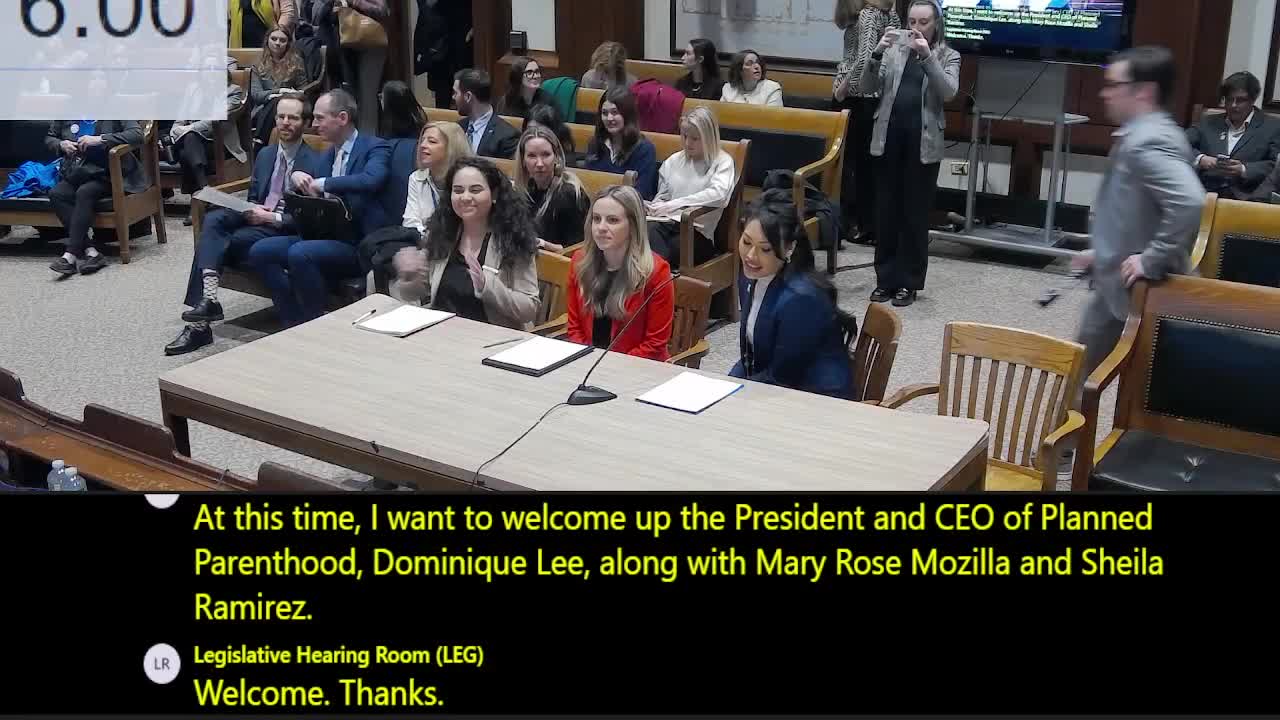Providers tell lawmakers rising out‑of‑state demand, Title X and telehealth threats imperil reproductive care access in Mass.
Get AI-powered insights, summaries, and transcripts
Subscribe
Summary
Planned Parenthood and reproductive‑rights groups told the Joint Committee on Public Health that surges in out‑of‑state patients, federal Title X and other funding actions, and threats to telehealth expose Massachusetts providers and patients to new risks; advocates urged legislative support and stronger shield laws.
Representatives of Planned Parenthood League of Massachusetts, reproductive‑rights advocates and reproductive justice groups told the Joint Committee on Public Health that Massachusetts clinics are seeing rising demand from out‑of‑state patients while federal actions threaten core funding streams.
Dominique Lee, president and CEO of Planned Parenthood League of Massachusetts, said her affiliate served over 45,000 patients in 2024 across four health centers and telehealth services and provided 9,000 abortions that year; she said 55% of Planned Parenthood patients who received abortion care chose medication abortion. “We are the largest provider of this care in the state,” Lee said, and she described a 37% year‑over‑year increase in out‑of‑state patients seeking abortion care from 2023 to 2024.
Mary Rose Mazzola, chief external affairs officer for Planned Parenthood League of Massachusetts, described Title X and related program risks. “Yesterday… the Trump administration announced a freeze on Title X while it investigates the program. We expect severe restrictions to be imposed again,” she said, urging that the legislature prepare emergency support similar to actions taken in 2019. Mazzola also flagged possible federal actions affecting the 340B drug pricing program and a Section 318 STD program that support reduced medication costs.
Advocates urged stronger shield law protections for providers and protections for telehealth delivery of medication abortion. Reproductive Equity Now told the committee that telehealth medication‑abortion programs have surged and that provider shield laws are being tested by prosecutions in other states. They urged steps to preserve patient and provider privacy, including anonymity on prescription labels and protections for phone‑location data.
Why it matters: Witnesses said the national landscape of abortion restrictions and federal enforcement threats are increasing cross‑state patient flows and straining provider capacity in Massachusetts. They asked the legislature to consider emergency funding, to strengthen shield statutes and to lower access barriers for young people, including bills that eliminate parental consent for minors seeking abortion.
What’s next: Planned Parenthood asked the legislature to consider state funding backstops if federal Title X and 340B supports are curtailed. Reproductive Equity Now and partners asked the committee to review shield‑law language and statutory exceptions that could leave telehealth providers vulnerable to cross‑state prosecutions.
